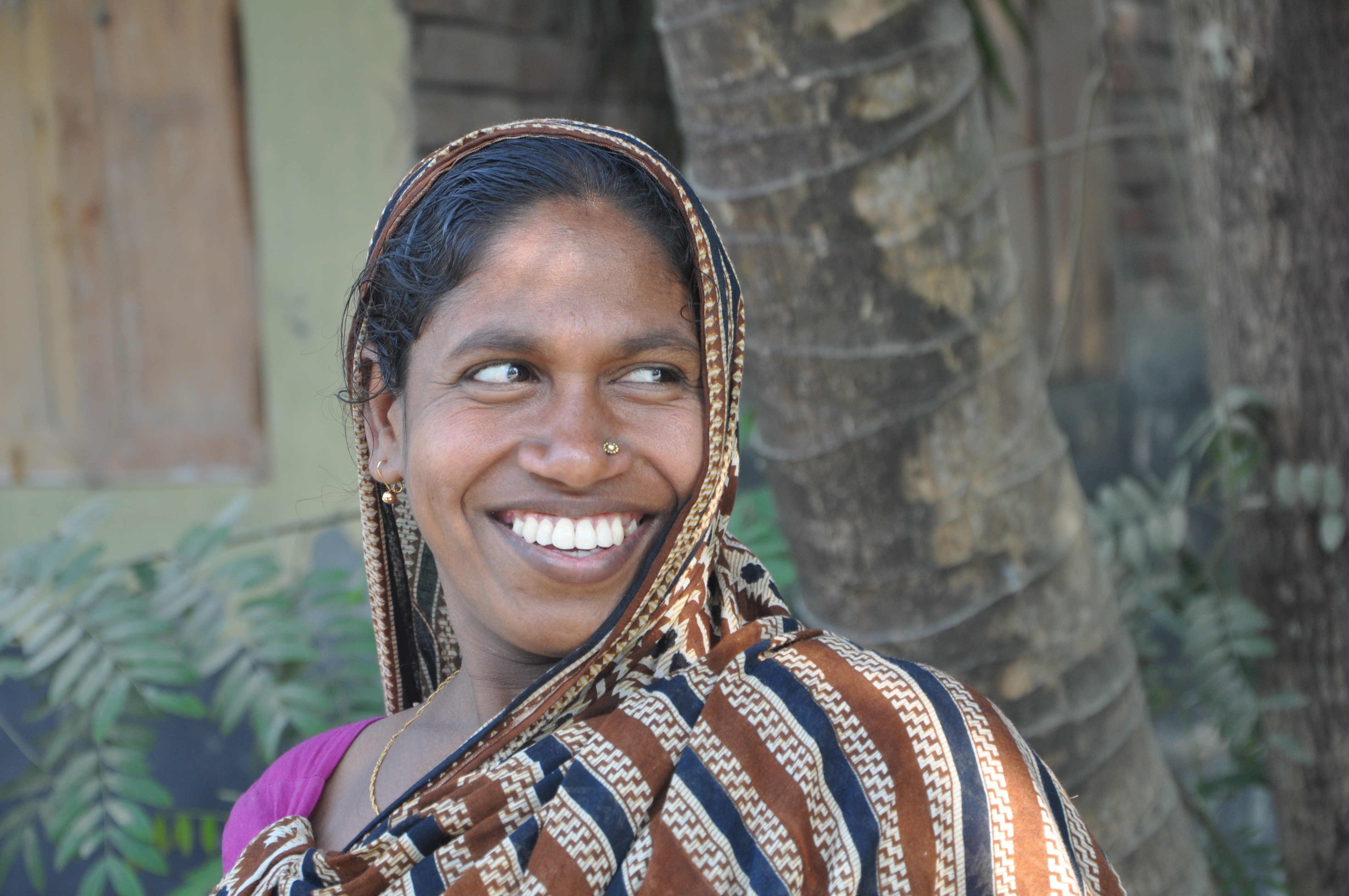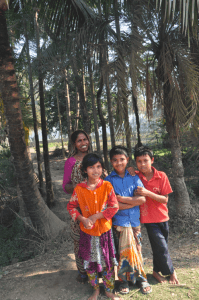
Salma, a mother of two, lives on a large piece of land in the Jessore district of southwestern Bangladesh and has been rearing livestock for more than 20 years. Despite her in-depth knowledge of raising and caring for her animals, they were not producing very much milk—barely enough for her family at only one-half liter.
 To help people like Salma increase milk production among their livestock, the USAID Livestock Production for Improved Nutrition project teamed up with the government of Bangladesh’s Department of Livestock Services (DLS) to promote the cultivation and use of high-quality food—or fodder—for cows.
To help people like Salma increase milk production among their livestock, the USAID Livestock Production for Improved Nutrition project teamed up with the government of Bangladesh’s Department of Livestock Services (DLS) to promote the cultivation and use of high-quality food—or fodder—for cows.
The project first gave Salma higher-quality fodder clippings, which she spread over her land. The clippings took root, and she used this high-quality fodder to feed her four cows. The cows quickly began producing larger quantities of milk. She now has enough for her family, with the potential to sell the extra milk at the local market. Over time, she realized that the fodder was also helping her cows grow healthier, and she was able to sell them for a higher price at market.
“Giving fodder to the bulls is making them bigger, healthier, and grow faster. Once I began including the fooder, the milk yield went from .5 liter to 4 liters per day.”—Salma
After witnessing first-hand the benefits of high-quality fodder, Salma began cultivating it on her land and sharing it with her community. She also decided to use a section of her land for demonstrations, experimenting with different plant varieties and showing community members how to grow new types. Sensing a business opportunity, Salma worked with project staff and local partners to learn about bookkeeping as she plans to grow and sell fodder, leveraging her farm for demonstrations and trainings for the wider community.
As the future looks bright, Salma continues to feed her cows high-quality fodder as she is fattening the bulls to sell for an upcoming festival. She is eager to continue working with the USAID Livestock Production for Improved Nutrition project, and wants to learn more and attend training sessions to grow her business and benefit her community.








